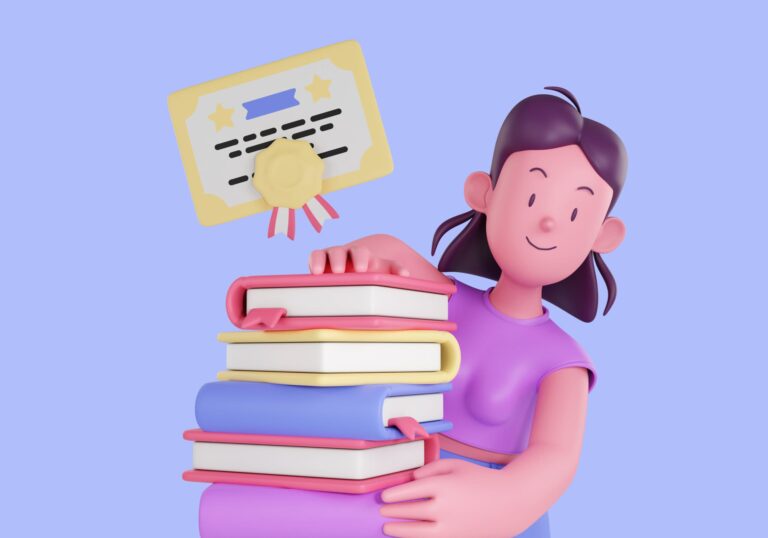How to quote a bible verse in an essay | Comprehensive guide in 2024
Music is a powerful way to convey emotions and feelings, with artists and songwriters investing their passion and creativity into their work. Similarly, authors also dedicate a significant amount of time and effort to expressing themselves through the stories they create. With the common thread between songwriting and storytelling, it is understandable why one would be interested in learning how to incorporate song lyrics into their writing correctly.
For additional support in refining your creative writing process, consider using an Essay Writing Service online that offers expert guidance on integrating diverse forms of expression into your work.
It is crucial to realize that using lyrics from a song in your writing is not just a matter of copying a songwriter’s words. Both authors working with traditional publishers and independent authors who self-publish must make sure they are not violating copyright laws by quoting song lyrics.
Why should you use song lyrics in your essay?
Authors incorporate song lyrics into their writing for various purposes. Using lyrics can enhance the depth of a story, such as having a character sing their favorite song in the shower to convey their emotions. Including song lines or verses between chapters can also help establish the mood or themes of the plot. Furthermore, quoting lyrics can subtly hint at future plot twists, adding an element of foreshadowing for the reader.
Writers may also choose to reference song lyrics when writing nonfiction or incorporating historical information into a fictional story. For example, in a novel set during World War II, characters could sing a well-known contemporary song like “Boogie Woogie Bugle Boy” to boost morale. This can add a sense of familiarity for readers.
If you’re working on a critical analysis or persuasive piece related to the integration of song lyrics in literature, our Argumentative essay writers can provide expert support to ensure your arguments are well-crafted and compelling.
No matter why you are using song lyrics in your story, it is important to make sure you are doing so within the bounds of the law. You cannot just insert someone else’s words into your story without their consent. This is why it is essential to understand the proper legal procedures for quoting a song.
How to legally quote song lyrics in your essay?
Before using a song in your story, you should check if it is allowed to quote it without the artist’s permission. It is possible that using a small portion of the song falls under fair use, which allows for the use of copyrighted material without permission. This means that you can include a small portion of the song without violating copyright laws.
Regrettably, utilizing music in a fair manner can be difficult. Typically, incorporating an entire lyrical line is necessary for the song lyrics to be effective in your storytelling, but using full lines may exceed the permissible amount for fair use.
Another way to use song lyrics legally without the artist’s consent is to check if the song is copyrighted or in the public domain. This can be complicated to determine. However, if the song is in the public domain, you may be able to quote the lyrics without needing permission from the copyright owner and without worrying about facing legal consequences.
What is the significance of quoting song lyrics in a legally permissible way?
As an independent author who publishes their own work, you may believe that your story will go unnoticed. If you don’t become a bestseller, you might think that using song lyrics in your work won’t be noticed by many people and you likely won’t face any legal consequences for copyright infringement. Is that correct?
Wrong!
It is crucial to legally quote a song for two primary reasons. Firstly, it is necessary to protect oneself from facing legal consequences. Nearly all songs are copyright protected and considered as someone’s intellectual property, whether it be the songwriter or the production company. Failing to obtain written permission from the rightful owner could result in a lawsuit, leading to years of legal battles and significant financial losses. Moreover, your reputation as a writer may also be negatively impacted.
The second important reason for learning how to legally cite song lyrics is to protect your reputation and integrity. Similar to plagiarism, using lyrics without permission can harm your credibility in the literary and academic fields. Your audience may lose respect for you and question the originality of your work if they suspect you are passing off someone else’s lyrics as your own.
It is important to be cautious and understand the proper way to legally quote song lyrics. You would not want your hard work and creativity to be stolen and used without consent. Similarly, the songwriters would also not want their work to be quoted without permission.
What is public domain?
Public domain refers to when a piece of content, like a song, is not restricted by copyright. There are several reasons why a song may be considered public domain.
- The copyright for the song has lapsed, which usually occurs 70 years after the artist’s death. If you plan to use a song in this category, you should verify if the rights are owned by the songwriter’s estate or production company.
- It was spontaneous and not physically written or recorded before the initial performance.
- The artist did not include a copyright notice, impacting works created before the new copyright laws came into effect in March 1989.
If you are using lyrics from a song that is in the public domain, that is excellent! However, it is still important to give credit by including a citation when using someone else’s intellectual property. Just because a song is in the public domain does not necessarily mean you are free to use the lyrics without any acknowledgment.
If the song you want to use is protected by copyright law, you should seek permission from the artist or copyright holder to use it.
Getting permission to use song lyrics
There are times when you may believe it is easier to seek forgiveness instead of asking for permission in certain situations. However, using song lyrics without obtaining permission can lead to legal issues, as you would essentially be publishing someone else’s words without their consent.
Luckily, it is possible to obtain authorization to use song lyrics. This may require reaching out to various individuals such as the artist, songwriter, production or publishing company, or the artist’s estate. The key is to determine who has ownership of the song rights.
After figuring out who has the authority to grant you permission to use the song lyrics, it is important to contact them. Look for their contact details on the internet, such as email, mailing address, or phone number. It is likely that professional artists and music production companies are accustomed to receiving such requests, so their contact information should be easily accessible.
How to cite the artist or songwriter
- The Chicago style is widely used in articles and essays discussing business and the arts. It is also commonly followed in books and novels, at least to some extent.
- MLA, which stands for Modern Language Association, is usually employed by writers when they are writing about subjects related to the humanities.
- APA, also known as the American Psychological Association, is a formal method commonly utilized in academic writing within the fields of education and science. As a result, it is unlikely that you will need to use this style in your story.
In school, you were probably taught the importance of citing sources when quoting someone else’s work. This is a way to give credit to the original creator and show your readers where they can find more information. Proper citations not only acknowledge the original author’s intellectual property, but also allow readers to discover more about the songwriter or artist. It’s a beneficial practice for all involved.
There are multiple methods for citing the song lyrics you include in your narrative. The following are the three most frequently used citation formats.
What must you have ready before reaching out to the copyright holder of the song?
Prepare yourself to respond to the inquiries that may be posed by the copyright holder of the song before reaching out. Here are some potential questions they may ask.
- Why you want to use a particular song.
- In what way will you incorporate the song lyrics into your project? Will you be using the entire song or just specific lines? If you only plan to use a portion of the song, be prepared to specify which part you intend to include in your narrative.
- The circumstances in which the lyrics are to be written. If the song has a negative meaning in your narrative, the artist may not allow you to use it. Furthermore, if you plan to mock a song by purposely misinterpreting the lyrics in your story, the artist may refuse your request to include their work in your manuscript.
- In what ways do you plan to incorporate the song into your media strategy? Will it be featured in your story? Would you consider including the song in an audiobook or using a sample in your promotional materials? Perhaps you could also play the song at a book launch event.
Once you have submitted the necessary information to the copyright owners, you can expect there to be some communication back and forth. This is important in order to establish the specific terms of the permission. The owners may request a payment or ask you to sign an agreement restricting your use to specific lyrics of the song.
While it may feel overwhelming, try to remain optimistic! The artist could be excited that you are incorporating their work into your story. It is essentially free promotion for them, as they are not compensating you and will receive exposure through their lyrics being used in your project. Just make sure to provide proper citation.
What is the most effective method for referencing song lyrics?
Authors typically choose between Chicago style or MLA when citing songwriters and other sources in their books. These methods are simpler for the author to use compared to APA style, and also easier for readers to comprehend. If you are uncertain about how to correctly cite a song, seek guidance from a publishing industry professional, such as a professional editor, who can assist in determining the appropriate citation style and even provide help in drafting the citation for you.
Besides citing the source, it is also a thoughtful gesture to express gratitude to the artist, production company, or anyone who allowed you to use their work on the acknowledgments page of your book. This not only shows appreciation for their contribution to your manuscript but also demonstrates to readers that you are acknowledging the source of your inspiration. It is recommended to always credit the creator of a song, regardless of copyright status.
What to do when a song has no copyright?
If a song is not copyrighted, you may not be obligated by law to provide credit to the artist or songwriter. Nonetheless, it is essential to thoroughly investigate all aspects and recordings of the song to ensure that no version of it is protected by copyright.
Additionally, it is important to remember that it is always recommended to reference your sources when using another artist’s words to improve your story. This demonstrates to your audience that you are a professional writer who values integrity. Therefore, it is essential to properly cite song lyrics.

Nicole Hardy
Article Author
Nicole Hardy is renowned in the fields of education and the arts journalism, particularly known for her detailed and insightful reporting on performing arts education. With a career spanning over a decade, she has established herself as a respected authority in this area. Hardy’s work is recognized for its in-depth analysis and engaging writing style. She holds a Master’s degree in Journalism from the University of Arts, specializing in arts and culture journalism.



